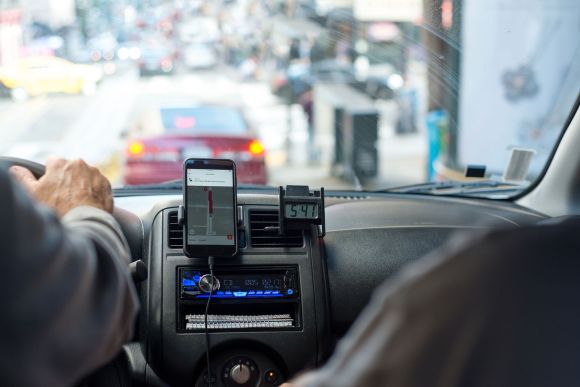The proliferation of rideshare companies like Uber and Lyft has created a whole new income stream for many people.
In general, as a driver for a rideshare company, if you contract your driving services and your work is not under the control of an employer, that means you’re considered an independent contractor or self-employed.
As a rideshare driver, you may have received a tax summary that includes your earnings and expenses – and a few IRS forms to report your earning in 2023:
- A 1099-K if you earned more than $20,000 in customer payments and 200 transactions. The IRS announced a delay in the reporting thresholds for third-party settlement organizations (TPSOs) set to take effect for the upcoming tax filing season. As a result of this delay, TPSOs will not be required to report tax year 2023 transactions on a Form 1099-K to the IRS or the payee for the lower $600 threshold amount enacted as part of the American Rescue Plan of 2021. Some well known TPSOs include Venmo, PayPal and CashApp. This means that for tax year 2023 (the taxes you file in 2024), the existing 1099-K reporting threshold of the aggregate of more than $20,000 in payments and over 200 transactions will remain in effect. The IRS is currently planning for a threshold of $5,000 for tax year 2024 (the taxes you file in 2025) as part of the phase in to implement the lower over $600 threshold enacted under the American Rescue Plan.
Per the IRS, This means that for tax year 2022 the existing 1099-K reporting threshold of $20,000 in payments from over 200 transactions will remain in effect. We expect the IRS to move forward with the over $600 reporting threshold for 2023 and the upcoming filing season unless Congress passes a law to change the requirement.
- A 1099-NEC if you earned $600 or more
Even if you don’t make enough to receive a 1099-K from a third-party provider or a 1099-NEC for income earned as a freelancer or contractor, you still need to report your income on your taxes.
However, because the forms won’t capture the many tax deductions you can take as a driver (which can lower your taxes significantly), here are some of the common business expenses you can claim:
Mileage
One of your biggest tax deductions will be for business mileage at 65.5 cents per mile for 2023. When you file your taxes and report any mileage deductions, remember to include:
- Miles when driving a passenger
- Miles when driving to pick up a passenger
- Miles when driving home after dropping off a passenger
Some rideshare companies will record your in-ride miles and out-of-ride miles. This can help you calculate your total tax deduction for mileage. If you can, it’s best if you also keep track of this yourself since the rideshare app may not track all of your tax-deductible mileage. You can easily and automatically track your business mileage deduction year-round when you use the Quickbooks Self Employed app.
If you claim the standard mileage deduction, you cannot claim actual car expenses. If you claim actual car expenses instead of standard mileage, you can claim expenses associated with maintaining your car based on a percentage of your business use. This includes expenses like oil changes, gasoline, car insurance, maintenance and repairs, lease payments, and depreciation.
Cell Phone
All rideshare companies communicate with you through their mobile app. Since your phone is a business expense, you may be able to deduct the expenses associated with your phone.
This includes the cost of the phone if you purchased a new one this year. It also includes a percentage of what you pay for the cell phone service based on how much you use your phone for your business as compared to your regular personal use. If you use it half the time, then you can claim 50% of the cost for the business. If you purchased any accessories, like a car mount or spare charging cables, those accessories are also tax deductible.
Passenger Supplies, Treats, & Goodies
Did you stock your car with drinks, snacks, or other goodies that you give to your riders? If so, those snacks and drinks are tax-deductible expenses (as long as you offer them exclusively to your riders).
If you purchased extra protective supplies like masks and hand sanitizer for your riders, those are also tax-deductible expenses!
Fees & Tolls
If you have to pay for any fees or tolls associated with your driving that aren’t reimbursed through the rideshare company, those expenses are also tax deductible.
For example, if you have to pay a toll and the rider doesn’t reimburse you, then you can claim it as an expense. If the rideshare company reimburses you because it’s app detects you went through a toll, then you can’t claim it.
Personal Grooming, Uniforms
Unfortunately, personal grooming expenses, like a haircut, and clothing are not tax deductible. Personal grooming is never tax-deductible and rideshare companies do not require a uniform, so you can’t claim work clothes as an expense. This also means dry cleaning your clothes is out too.
Driving for a rideshare company can be a great way to earn some extra income. And learning about all the business deductions can be a great way to keep more of it at tax time!
Don’t worry about knowing these tax laws. TurboTax Premium will ask simple questions about you and your business and give you the business and personal tax deductions you are eligible for based on your entries. You can also use QuickBooks Self-Employed to track your income, expenses, and mileage year-round and then easily export the information to your TurboTax Self-Employed tax return.
Meet with a TurboTax expert who can prepare, sign and file your taxes, so you can be 100% confident your taxes are done right. Start TurboTax Live Full Service today, in English or Spanish, and get your taxes done and off your mind.

